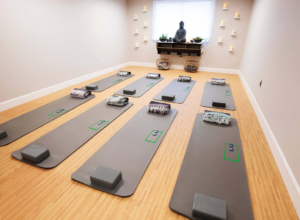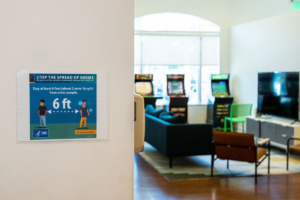If you or a loved one are struggling to break free from addiction,
We Level Up Lake Worth provides an effective pathway to achieving a stable and fulfilling life.
LEVEL UP TREATMENT LAKE WORTH REFERRED TO AS
WE LEVEL UP LAKE WORTH FL
9935 Palomino Drive
Lake Worth, FL 33467
(855) 459-2880
Proud member of the We Level Up Treatment Centers Network.
Admission Process
At We Level Up Lake Worth FL, we understand that coming into treatment for the first time can be quite an anxious first step for clients and families. Our team of admissions coordinators understands this and is eager to help offer advice and organize every step of your case–ensuring you are fully supported, encouraged, and provided with all the answers to your questions.
We typically admit within 24 hours of contacting our admissions office. Find details on our admissions process and instant bed availability check. When you reach out to We Level Up, an addiction treatment professional will provide Instant verification of insurance to help you determine if your payment options and/or benefits cover the level of treatment needed.
Call 855-459-2880 or complete the Confidential Contact Form to learn more about your journey to sobriety and to take the next step toward lifelong recovery.





Why Choose Our Facility?
Every individual presents a different addiction story that’s unique to him or her. From the first interaction with the individual or family, we work with you in order to provide you with the right level of care to meet your specific needs as you heal and rebuild your life.
- We are a fully licensed and accredited facility
- We accept most private insurance providers
- Our professional experts meet the highest quality of addiction treatment
- We offer comprehensively effective addiction treatment programs
- We feature many unique alternative therapies
Check for available beds
We level Up Addiction Programs, Therapies & Activities
At Lake Worth, Florida, we provide a variety of holistic drug and alcohol treatment programs, such as:
Motivational Interviewing (MI)
Motivational Interviewing is a type of treatment that focuses on what motivates an individual and hones in on that, applying the motivation to addiction recovery. In order for this therapy to work, a collaborative effort and communication takes place between the patient and therapist. William Miller, the creator of MI, explains that the purpose of this approach is “to strengthen the client’s own motivation for and commitment to change in a manner that is consistent with said client’s values”.
Cognitive Behavioral Therapy (CBT)
Cognitive Behavioral Therapy is a method of helping individuals take a deep look at their thoughts an emotions to recognize patterns that lead to unhealthy behaviors and actions. It is all about recognizing and breaking the cycle of destructive thoughts. This evidence-based therapy, CBT, is based on a cognitive model that explains the connection between an individuals perception and reality and how the effect one’s reaction.
Dialectical Behavioral Therapy (DBT)
Another type of therapy that brings attention to emotions and how they affect behavior is DBT, “an effective treatment for substance abuse disorders, eating disorders, anger-related issues, self-injury, and personality disorders.” DBT works specifically to regulate emotions and minimize intense feelings that often lead to harmful behaviors, such as drug use.
Seeking Safety (And Other Trauma Focused Therapies)
Seeking Safety is a therapy approach that was developed by Lisa M. Najavits, Ph.D. and a grant she received from the National Institute of Drug Abuse (NIDA). This therapy is present-focused, meaning it “helps clients attain safety from trauma (including PTSD) and substance abuse by emphasizing coping skills, grounding techniques and education”. The Seeking Safety therapy is proven to be effective in many cases. This research-based therapy practice uses 3 key principles. The first is helping clients attain safe thought, emotions, behaviors, and relationships. Integrating the treatment of their substance use and their past traumas is the 2nd principle. The 3rd and final principle is creating a focus on thoughts that counteract the loss of the thoughts, feelings, and emotions that were felt during both the experiences of trauma and substance use.
Medication-assisted treatment (MAT)
Medicated-Assisted Treatment (MAT) is the use of FDA-approved medications in combination with counseling and behavioral therapies to provide a ‘whole-patient’ approach to the treatment of substance abuse disorders. These medications are an adjunct to other treatment approaches such as extended psychological and psychiatric care, counseling based on 12-steps program for addiction recovery, and other therapies.
Holistic healing treatments
- Acupuncture
- Reiki (Reiki is a form of alternative therapy commonly referred to as energy healing)
- Yoga
- Sound Healing
- Meditation